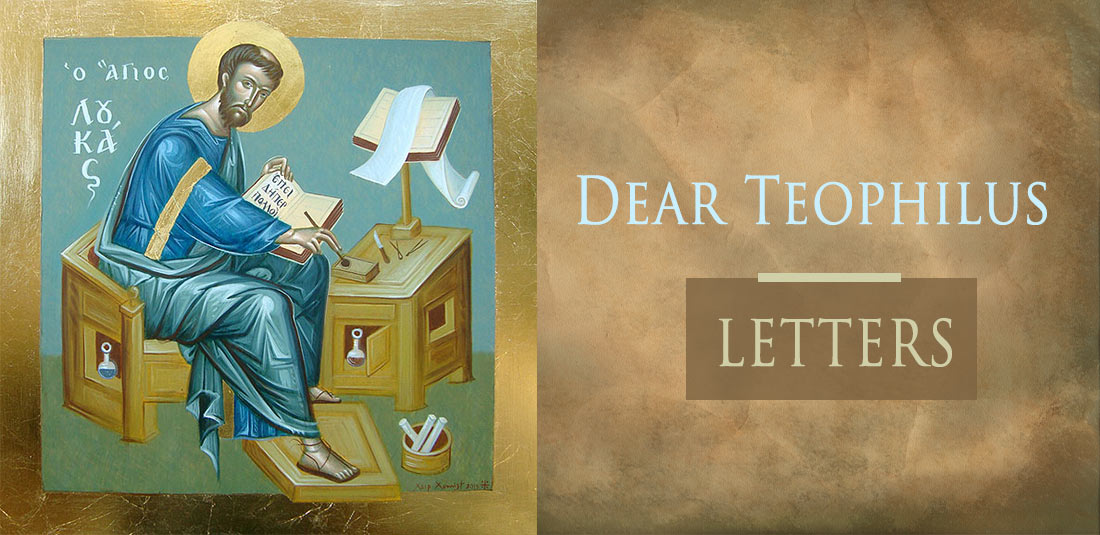Dear Theophilus , (Letter 79. )
In your last letter you raise an issue that has been troubling you and that is problematic for many people. Let me restate what the problem is that you referred to. How can the Bible be considered as sacred writings when we read in it a call to genocide and an extermination of an entire people?
Marcion, in the time of Origen, rejected the Old Testament because of the cruelty of the God of the Law as depicted in the books of the Old Testament. He could not reconcile the God of Jesus in the New Testament with the God portrayed in the Old Testament and as a result, Marcion could not accept the Old Testament as an authoritative book on spirituality.
It is surprising how often this point is brought up concerning the god portrayed in the Old Testament. The difference between this perceived god and the God of Jesus is brought out to indicate that the Old Testament is passe and the world has moved on to better things. But what this does is betray a lack of knowledge of what the Old Testament teaches and it is often this ignorance as opposed to malice that is operating in these discussions.
The specific example you refer to is spoken about in the books of Deuteronomy and Joshua. In the final speeches of Moses, Israel is called on to destroy all of the Canaanites in the land, including women and children. The Book of Deuteronomy contains, for the first time in the Pentateuch, the permission to divorce and the command for herem warfare whereby Israel is to put to death all the inhabitants of the Promised Land – men, women, and children.
It should be pointed out that not all laws in the Old Testament are created equal nor have equal weight in their demands on us. The obscure demands are often raised in an attempt to show that the Old Testament belongs in the history of long ago and has very little relevance to today’s people. This is a faulty view and if one studies the Old Testament a little bit more seriously one will quickly see this as a flawed position.
Jesus himself speaks in the New Testament that the permission to divorce in Deuteronomy is seen as a concession to the hardness of the hearts of the Israelites and is not to be seen as universally normative. Moreover, the historical circumstances need to be considered when evaluating the validity of some of the laws in the Old Testament. This is in answer to those who isolate a quotation from the Old Testament and demand an explanation as to where it fits in in our beliefs. Sadly, too many speak out of ignorance and do not see what the Old Testament, as a whole, is teaching.
It is in the light of the New Testament and the Church’s teaching that we are to evaluate the laws of Deuteronomy. In fact, Jesus challenges the Pharisees in their dependence on what Moses said by substituting Moses’s commands by those of Jesus – And I say to you, says Jesus: whoever divorces his wife, except for unchastity, and marries another, commits adultery. It is interesting that in this exchange with the Pharisees Jesus attributes the command of Deuteronomy concerning divorce to Moses and not to God.
Notice that the laws of the first and second Sinai covenant are constantly prefaced with the phrase “The Lord spoke to Moses”; however, almost all of the book of Deuteronomy is presented as a first-person speech of Moses. There is little reference to the fact that it is God, himself, who is enacting these ordinances. Moses takes on the responsibility for the origin of these laws. “And now, O Israel, give heed to the statutes and ordinances which I teach you…” says Moses.
It seems that in the book of Deuteronomy, there is an effort to create a distance between the Lord and the Mosaic legislation. The laws of Deuteronomy do not always represent the divine ideal but are accommodations or compromises introduced by Moses. Laws that seem disharmonious with principles stressed in other parts of Scriptures, may be indications of Moses trying to accommodate the Israelites and these laws may not be universally normative. And it is exactly these laws which lie in contradiction to what Scriptures teach elsewhere that are suspect as being non-normative.
Several ‘explanations’ can be considered in answering your concerns but I will focus on only one. The call for a complete destruction of the Canaanites and their influence on Israel comes as a last resort. In Exodus, Israel is called on to destroy the altars of the Canaanites and to make no covenants with them. This comes on the heals of the creation and worship of the golden calf. Then, after the apostasy at Moab, Israel is called on to destroy the altars of the Canaanites and to drive them out of the land. (Num 33:50-56). And then finally, when these steps fail to keep Israel from sliding into paganism, Israel is called on to destroy all of the Canaanites in the land, which, by the way, was never accomplished. From this, we see a progression in severity of dealing with the indigenous population and the effect of this population on Israel’s worship and adherence to God. In a sense, the call to destroy the Canaanites is a concession to the repeated sinfulness and hard-heartedness of Israel. The inherent weakness of Israel made it necessary to go to the extreme limit of destroying those who kept Israel from continuing serving God because it seems that Israel does not have the spiritual reserves to withstand the temptation of paganism.
It is also interesting and informative, that the Old Testament itself describes certain laws as ‘not good’. Thus Ezekiel writes (chapter 20): “I (the Lord) gave them my statutes and showed them my ordinances, by whose observance man shall live…Moreover I gave them statutes that were not good and ordinances by which they could not have life.” And in the New Testament Jesus speaks of the permission to divorce in Deuteronomy as something that was allowed because of the hardness of their hearts.: The Pharisees said to Jesus: Why then did Moses command one to give a certificate of divorce, and to put her away?” He said to them, “For your hardness of heart Moses allowed you to divorce your wives, but from the beginning it was not so.” (Mt 19:7-8)
The presence of certain laws in the book of Deuteronomy does not mean that we are to uncritically accept these laws. The prophet Malachi rails against divorce: I hate divorce, says the Lord the God of Israel. There could be other quotes given but what it shows is that there is an internal assessment of laws that they should comply with the overall demands made in the Scriptures.
It is also very significant that the very book of Deuteronomy itself questions the permanence of some of the Deuteronomic statutes. For example, they do not have the same status of importance as the Ten Commandments. In contrast to the Ten Commandments, which are kept inside the Ark of the Covenant, the Book of the Law of Deuteronomy is put by the side of the Ark, suggesting it as of secondary importance. When Jesus expresses criticism of certain aspects of the Mosaic Law, he is not inaugurating something novel or new but is standing in a tradition rooted in the Law itself and the Prophets.
In the book of Wisdom (12) it is written: Who will accuse you for the destruction of nations which you made?…..You are righteous and rule all things righteously, deeming it alien to your power to condemn him who does not deserve to be punished. Scriptures make it very clear that God does not wish the death of innocents and even of those who are guilty and therefore, the call to destroy completely the original population of Canaan makes no theological sense. It is not in keeping what the whole gist of God’s love for man teaches us in the Old and New Testaments. This call to destroy has to be understood from another perspective and I have referred to it above.
There is another interesting point that is described in the book of Deuteronomy. After all the years of travail, the people of Israel come within sight of the promised land. And now, Moses, who has led them from Egypt and through all kinds of trials, is denied the right to bring them into the land – this task is given to Joshua (Jesus is the Hellenized name for Joshua). Moses is found wanting and the privilege of bringing the Chosen People is given to Joshua. This is a telling judgement on Moses and it is in keeping with all that we have discussed above. And it is also a telling argument that the Old Testament is incomplete. It is an important foundation but it is not the whole structure of salvation and redemption.
I hope that this, at least partially, answers your question.
Sincerely,
Bar-Abbas






